#not diagnosed with cfs currently but i do suffer from fatigue so hoping to do anything that can help me out w that
Text
any mobility aid users with fatigue and (mostly) no pain? i’m trying to figure out if there’s anything i can do to help with my fatigue when i still have to like. go out into the world
my friend let me borrow an extra cane of theirs but i only used it for a short trip to the mall so i don’t think i got a full idea of what it would do to help me, they use forearm crutches now and i’m feeling like that might be helpful for being able to rest on them? i don’t have chronic pain but when i can’t sit down i’d like to have something i can rest on a little without hurting my wrist.
most mobility aid users that i’ve seen so far have chronic pain in addition to fatigue or other issues so i don’t know if their advice is the most applicable to my specific situation. so if anyone has any recommendations for specific types of aids or even a particular cane brand, etc that works for them that would be much appreciated
#not diagnosed with cfs currently but i do suffer from fatigue so hoping to do anything that can help me out w that#cue miles of tags for visibility#chronic illness#chronically ill#chronic fatigue#cfs#myalgic encephalomyelitis#cfs/me#ulcerative colitis#spoonie#spoon theory#mobility aids#mobility aid#disabled#disability pride month#actually autistic#mobility aid user#ambulatory cane user#ambulatory wheelchair user
90 notes
·
View notes
Photo
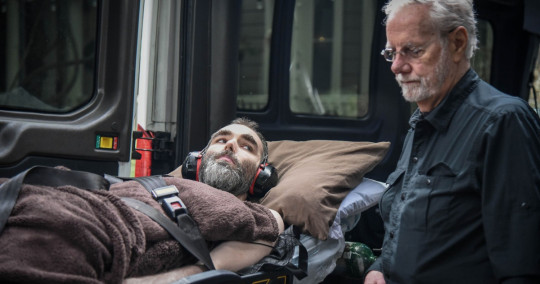
A geneticist’s biggest challenge: Curing his own son
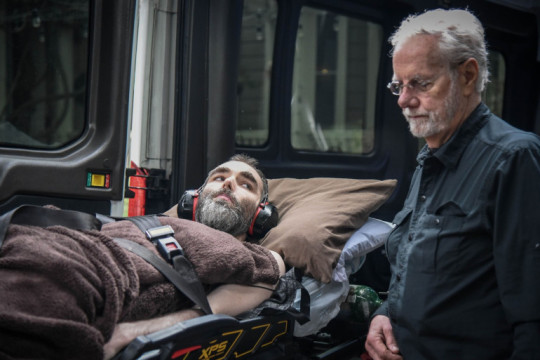
Palo Alto, California – Whitney Dafoe’s day begins at 2:30pm. His father, Ron Davis, peeks through the keyhole into the 37-year-old’s room. Is he awake?
ABSOLUTELY NO ENTRY is scrawled in red on a handmade sign pinned to the door below a picture of the Dalai Lama. Davis has rushed home from Stanford University in Palo Alto, California, to take the afternoon shift. When Whitney raises his left hand, fingers clenched to a fist, that’s Davis’s cue. Whitney is ready for his dad to change his diapers, put ice on his aching belly, and refill the IV-drip.
Davis’s shift ends at 6pm when his wife, Janet Dafoe, takes over. Dafoe, a child psychologist, carefully attaches a bag filled with liquid nutrients to her son’s j-tube because he cannot digest solid food. She will also take the night shift, so her 79-year-old husband can return to Stanford to work on the task that’s been governing his life for years: finding a cure for his son.
Whitney was diagnosed in 2010 with myalgic encephalomyelitis, or chronic fatigue syndrome (ME/CFS), a complex illness that leads to debilitating exhaustion, brain fog, insomnia and neurocognitive impairments. Any physical or mental effort aggravates the fatigue. He has been mostly bedridden for the last 10 years and has not spoken a word since Christmas 2014. He only communicates via pantomime or by typing short messages into his tablet. In one of his texts several years ago, Whitney typed, “Chronic fatigue sounds too banal. I call it total body shutdown.” He added an apology to his parents: “I am sorry I’m ruining your golden years.”
At about 190cm (6-foot-3), Whitney weighs a little over 45kg (100lbs). His head is shaved, his figure emaciated. Filmmaker Jennifer Brea (Unrest), a fellow ME/CFS patient, compares the illness to “a broken battery” that can only charge to five percent. Nobody has been able to identify a single cause. There are no standard diagnostic tests and no cures, doctors can only rule out other illnesses such as multiple sclerosis (MS) or cancer.
The National Academy of Sciences estimates that up to 2.5 million Americans suffer from ME/CFS, and an estimated 84 to 91 percent of people with ME/CFS are not diagnosed. The World Health Organization lists ME/CFS as a neurological illness, but Davis is convinced he’s confronting an autoimmune disorder, not unlike MS. Like many autoimmune disorders, it disproportionately affects women. His research became especially urgent after Dr Anthony Fauci, the top infectious disease expert in the US, warned that the novel coronavirus could cause ME/CFS.
“CFS is probably the last major illness we need to figure out,” says Davis, who speaks with a voice so tender everyone around him immediately lapses into silence so they can understand his words. “I feel the tremendous weight to find a solution.”
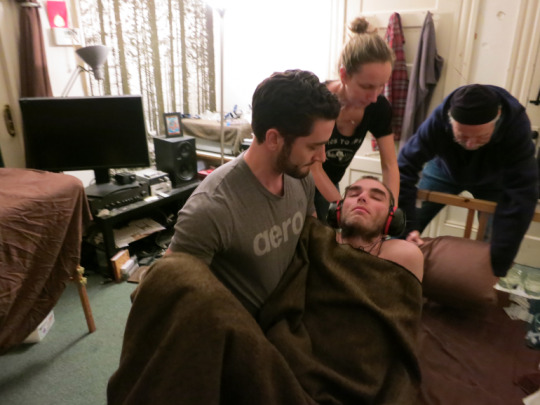
Whitney Dafoe, 37, who has chronic fatigue syndrome, weighs little more than 45kg
A problem solver
Davis, the director of the Stanford Genome Technology Center, has solved complex puzzles before. It’s something he has enjoyed since childhood when he would build model rockets, persevering despite being told by teachers that he would never amount to much because of his dyslexia.
He later developed one of the first methods for mapping DNA in 1967. In his 50-year career as a biochemist and geneticist, he has also worked with Nobel laureate James Watson at Harvard, created the first image of the pairing of two genomes, and made crucial contributions to the Human Genome Project.
I’ve always found tremendous joy in solving problems that others deem unsolvable.
Ron Davis
In 2013, Atlantic magazine counted him as one of “today’s greatest inventors.”
“I’ve always found tremendous joy in solving problems that others deem unsolvable,” he says in the foyer of his house, but the joy drains from his face when he stops at his son’s door. “My greatest hope is that we find the cause.”

Whitney, before he became ill with ME/CFS
‘When Ron calls, we come’
Whitney was an award-winning photographer with a keen, meditative eye. The lanky, curly-headed adventurer explored all 50 states and nearly all continents with his camera. He lived with a shaman in Ecuador, discovered the Himalayas on the back of his motorcycle, and helped build a nunnery in India. Like many CFS-patients, his breakdown started with an infection: In 2007, he went to a clinic in India with a fever and bloody diarrhoea. When the doctors there could not help him, he booked the next flight home to California.
But despite innumerable doctor visits, he kept getting weaker. In 2009, he took photos of then-President Barack Obama’s inauguration but already could not work full days anymore. He tried keeping up with wedding photo assignments, but it would take him an entire week to recover.
“First he couldn’t carry his shopping bags anymore, then he became too weak to cook, so in May 2011, he moved back in with us because he didn’t have the energy anymore for the simplest everyday things,” Janet Dafoe recalls. “At first, we couldn’t understand why he was always so tired. Then, we thought, OK, who are the specialists? At which clinic can we get help? We tried absolutely everything the doctors recommended.” She runs down a long list of medications, antidepressants, cancer remedies, MS supplements. “Until we realised: Nobody knows how he can get healthy again.”
That is when Davis came to a decision: “I have to do it.”
Whitney’s state is comparable to an AIDS patient about a week before his death. And that has been the case for the last six years.
Ron Davis
The words of the doctor who finally diagnosed his son with ME/CFS burned themselves into his memory: “The good news is, he won’t die from it. The bad news is, he won’t die from it.” But the truth is that any further infection, for instance from his feeding tube, could be the end.
Davis understands his race for a cure as a race against the death of his son. “Whitney’s state is comparable to an AIDS patient about a week before his death. And that has been the case for the last six years,” Davis says. At one point, Whitney spelled D Y I N G with scrabble tiles.
In 2013, Davis founded the Stanford Chronic Fatigue Syndrome Research Center (now called ME/CFS Collaborative Research Center). In his labs, centrifuges churn with the blood of dozens of severe ME patients, including his son. A geneticist colleague is sequencing their genes as a favour.
“There are still doctors who send these patients to a psychiatrist,” Davis laments. “If a general practitioner analyses Whitney’s blood, they get near-normal results. Therefore doctors think the illness is in their head.” But when he explored further, Davis detected anomalies. After more than 9,000 experiments, Davis has proven that Whitney’s blood is thicker and stickier. When he exposes the blood of healthy people to a stressor such as salt, it will soon revert back to normal, whereas the blood conductivity of CFS patients collapses. Davis has developed four diagnostic tools he is currently testing and believes he will soon be able to announce a breakthrough in confirming biomarkers.

Ron Davis, one of the world’s leading geneticists, is focused on finding a cure for his son
But Davis’s deeply personal fight for his son’s health is also a battle for the recognition of this illness. The National Institutes of Health spent only about $15m in 2019 on ME/CFS research, which affects up to 2.5 million Americans. It spent about $111m on MS research, which affects about one million people.
Luminaries from all over the world have joined Davis’s research and flew in for the last pre-pandemic CFS Symposium at Stanford in September 2019: Robert Phair, a former Johns Hopkins School of Medicine professor, has seen interrupted metabolism in patients; top surgeon Ron Tompkins established a CFS research collaboration at Harvard University; Maureen Hanson, professor of molecular biology at Cornell University who was motivated to join the efforts by a family member with CFS, has focused her research on the microbiome of patients’ gut and blood; neuroscientist Jonas Bergquist who travelled from Uppsala University, in Sweden, where he started a research centre on ME/CFS.
Stanford geneticist Mike Snyder summed up what many of them think: “When Ron calls, we come.” They all acknowledge his brilliant mind and work ethic, and complain about the lack of funding to study this complex disease.
With Davis’s help, the Open Medicine Foundation, which leads the largest non-profit effort to diagnose, treat and prevent ME/CFS and related chronic, complex diseases, raised more than $18m in 2019 and was on track to raise another $20m in 2020. Davis, who is the director of OMF’s scientific advisory board, has such a stellar reputation among scientists that he was able to convince numerous renowned researchers at Ivy League universities to contribute to his work, including Nobel Laureates Paul Berg and Mario Capecchi.
They have made progress: Neurologists found inflammatory changes in the brain; immunologists suspect an error response in the immune system; and geneticists point to a genetic marker for CFS that up to three-quarters of people may have. “It’s like looking at an elephant,” Davis jokes. “One is checking out the trunk, another the legs, and a third the ears. Everybody finds something in their area.”
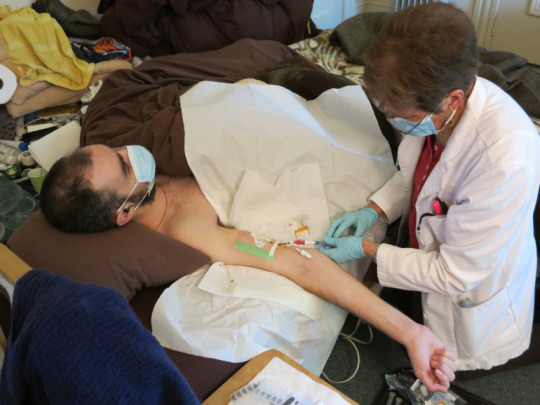
Whitney has not said a word since Christmas, 2014
ME/CFS and COVID-19
Davis’s research became even more urgent and important after Dr Fauci warned that some COVID survivors showed symptoms in line with those of ME/CFS. “This is a phenomenon that is really quite real and quite extensive,” Fauci said at the federal government’s first conference on “COVID long haulers” in early December, calling it “a significant public health issue”.
According to Fauci, “a considerable number” of COVID survivors struggle with extreme exhaustion, memory lapses, and cognitive difficulties many months after they have been officially cleared as recovered.
Davis is part of a high-level interagency work and research group (PDF) looking at the long-term consequences of COVID with the Centers for Disease Control and Prevention (CDC), National Institutes of Health, the Veterans Administration, and the Department of Defense.
This could be a turning point to figuring out how ME/CFS gets triggered and how to stop it before it starts.
Whitney Dafoe
He launched the first study into long-term molecular changes in COVID patients and he is years ahead in his research on why some patients cannot recover easily after a severe viral infection.
“This could be a turning point to figuring out how ME/CFS gets triggered and how to stop it before it starts,” Whitney typed in a text shared by his parents. “They are taking blood from coronavirus patients and monitoring their progress so they can see, in real-time, the transition from coronavirus to ME/CFS.”
‘Superman’
In the early years, Whitney was still able to work with a physiotherapist. “Now he can’t tolerate strangers in the room. Everything is too much.” Janet Dafoe sighs. She reduced her therapy hours and her husband reorganised his institute so they can care for Whitney around the clock. Sometimes, a nurse takes over the night shift, but the family cannot afford constant care. “Many ME/CFS-patients have a warped night-day rhythm,” Janet Dafoe explains why she often stays with her son until 5am. They have tried in vain to find a different rhythm. “Whitney hardly sleeps more than two hours a night, and nobody knows why.”
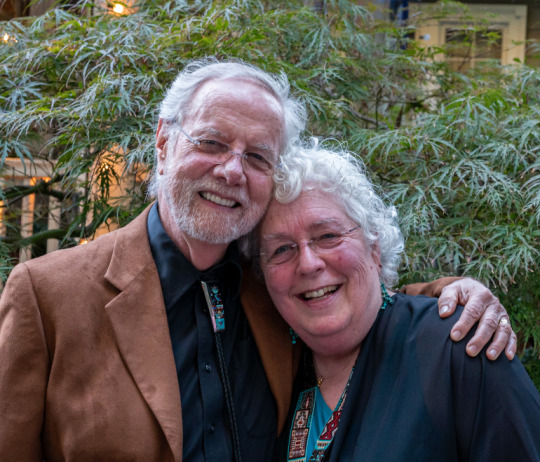
Ron Davis and Janet Dafoe
Just like the virus took over their son’s body, it has also brought his parents’ lives to a standstill. “Our life is stuck in a holding pattern,” Janet Dafoe acknowledges. “Doing my PhD was hard. I conquered mountains, that was hard. But living with my son’s illness is a thousand times harder. Our entire world has been eaten up by a chronic disease.”
Last July, Davis and Dafoe celebrated their 50th wedding anniversary. They met at the California Institute of Technology (Caltech) when she was a budding child psychologist, he a geneticist who had already garnered the first of his 30 patents. They immediately connected over their shared interests: hiking, nature, Indigenous American wisdom. They used to enjoy mountain tours, trips to the Sierra mountain range, and visits with Native American shamans. But their travel together has all but ceased as at least one of them always stays close to their son. They still have a traditional sweat lodge in their lush garden, Janet Dafoe’s greatest pride.
“Because we can’t travel anymore, I take care of the garden, so we at least have a nice place here,” Janet Dafoe says, her grey curls framing her face. Tibetan prayer flags flutter above the pillars of their elegant single-family home in Professorville in the heart of Palo Alto, a reminder of Whitney’s Buddhist faith.
This is a devastating, really serious disease that affects many body systems. It will completely knock you out, it will ruin your life and the lives of people who take care of you. It can affect anyone if they just get the wrong virus or the wrong environmental stress.
Janet Dafoe
In the hallway leading to Whitney’s room, Whitney and his younger sister, Ashley Haugen, smile from framed photos, taken in happier times, their toddler selves dancing hand-in-hand. Ballet used to be Ashley’s passion; now she is an event manager and new mother.
In 2011, after Whitney first fell ill, his sister took care of him for a full year. But she burned out. “He was my best friend,” she says. “It is hard to find someone who knows you as well as your brother.”
Her parents invited friends and colleagues to their Palo Alto home on this pre-pandemic afternoon the day after the conference, including a dozen patients with milder ME who are strong enough to leave the house. For 20 years, Janet Dafoe worked full-time at the Children’s Health Council in Palo Alto, then the last 15 years at the Morrissey Compton Educational Center in Redwood City, mainly counselling children with Aspergers and autism. Instead of taking care of her own psychology patients, she now spends many hours a day comforting other ME/CFS patients. “I try to show them that they are not alone. I am busy every day to prevent suicides,” the mild-mannered Janet Dafoe says, then her tone changes and she speaks of increasing despair.

Whitney and Ashley when they were children
“This is a devastating, really serious disease that affects many body systems. It will completely knock you out, it will ruin your life and the lives of people who take care of you. It can affect anyone if they just get the wrong virus or the wrong environmental stress,” she adds. “They should all be up in arms that the research isn’t funded better so we can figure this out! Instead, some doctors are still telling patients to simply man up or exercise. They are basically committing malpractice. It’s absolutely mind-blowing.”
Of course, many patients are depressed and anxious, she says, “because so much has been taken away from them. But that doesn’t mean the illness is in their head. You would be depressed, too, if you couldn’t do most of the things you used to do, and nobody knows how you can be helped.”
She tries to retrieve her sense of humour, recounting one of her last conversations with her son several years ago. He was worried he would not be able to find a wife. “’They’ll all be taken by the time I’m recovered,’” Janet Dafoe smiles as she remembers his words.
“I told him finding a girlfriend for him will be the easiest problem to solve.”
Everything can change in a moment. You never know what will happen in the future. Never stop fighting. I'm fighting with you. If you feel like giving up, give it to me. I will carry it for you.
Whitney Dafoe
This year, Whitney’s energy has improved a little with experimental medication. For the first time in years, he can type longer texts into his tablet, opening a window into his isolated inner world. When Dafoe asked her son if he had a message for other CFS patients, Whitney closed his eyes, focused, and wrote a few lines: “Everything can change in a moment. You never know what will happen in the future. Never stop fighting. I’m fighting with you. If you feel like giving up, give it to me. I will carry it for you.”
Janet Dafoe had the lines printed on posters, with a picture of Whitney’s raised left fist, photographed through the keyhole of his room.
It’s a fight his parents have vowed to never give up either. Davis’s book with award-winning journalist Tracie White, The Puzzle Solver: A Scientist’s Desperate Quest to Cure the Illness that Stole His Son, hits bookshelves this month. It paints an intimate portrait of Whitney’s journey to diagnosis and his father’s fight to find a cure.
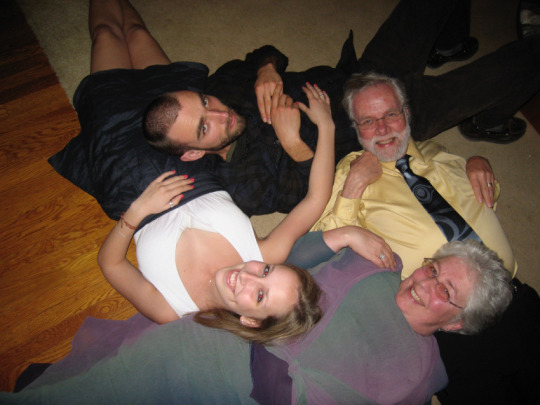
Whitney, with his parents and sister, who have taken care of him at different times since he fell ill in 2010
Sitting in the garden, Davis keeps checking his mobile phone until it tells him it is time for the next feeding. He promptly gets up to mix a second helping of nutrient powder for his son.
When Davis returns from feeding his son, his face is crumpled by exhaustion. “I’ve got to sit down,” he says. Both father and son have Ehlers-Danlos syndrome, which causes joint pain and fatigue. Davis started suffering from rheumatic fever as a one-year-old toddler, was often bedridden for weeks as a child; he lives with chronic pain every day. “I’m used to pain,” he says flatly. “You just rewire your brain to ignore it.”
It was precisely his childhood experience with medicine that ignited his passion for science. When a doctor gave him penicillin for the first time, instantly erasing his fever, the child thought medicine was a miracle and vowed to study it from then on. “His whole life prepared him for the task of saving his son,” Janet Dafoe comments. “Whitney truly believes dad is superman.”
The book The Puzzle Solver, co-written by Ron Davis and Stanford science writer Tracie White, will be published January 5, 2021, by Hachette.
#technology Read full article: https://expatimes.com/?p=16320&feed_id=26392 #coronaviruspandemic #features #health #scienceandtechnology #unitedstates #usampcanada
0 notes
Text
New Recognition for Chronic Fatigue
By Jane E. Brody, NY Times, Nov. 27, 2017
Having recently endured more than a month of post-concussion fatigue, I can’t imagine how people with so-called chronic fatigue syndrome navigate through life with disabling fatigue that seemingly knows no end. Especially those who are erroneously told things like “It’s all in your head,” “Maybe you should see a psychiatrist,” or “You’d have a lot more energy if only you’d get more exercise.”
After years of treating the syndrome as a psychological disorder, leading health organizations now recognize that it is a serious, long-term illness possibly caused by a disruption in how the immune system responds to infection or stress. It shares many characteristics with autoimmune diseases like rheumatoid arthritis but without apparent signs of tissue damage.
Accordingly, doctors now typically refer to it as myalgic encephalomyelitis, meaning brain and spinal cord inflammation with muscle pain, and in scientific papers it is often written as ME/CFS. At the same time, a major shift is underway as far as how the medical profession is being advised to approach treatment.
The longstanding advice to “exercise your way out of it” is now recognized as not only ineffective but counterproductive. It usually only makes matters worse, as even the mildest activity, like brushing your teeth, can lead to a debilitating fatigue, the core symptom of the disease. Both the Centers for Disease Control and Prevention in the United States and the National Institute for Health and Care Excellence in Britain are formulating revised guidelines for managing an ailment characterized by six or more months—and sometimes years—of incapacitating fatigue, joint pain and cognitive problems.
It is understandably difficult for doctors to appreciate that a disorder lacking obvious physical abnormalities could have a physical basis, especially when patients debilitated by a chronic disease that no one understands are likely to be depressed and anxious.
For patients struggling to get recognition that they are suffering from a serious physiological illness with real symptoms, the goal remains to have doctors take the problem seriously and prescribe an evidence-based approach to treatment that offers hope for relief.
Medical practitioners who remain disease deniers may think differently after learning about factors that can precede an attack of ME/CFS and the abnormalities now known to often accompany it. For example, one person in 10 who meets the diagnostic criteria for this syndrome reports that it followed an infection with Epstein-Barr virus, Ross River virus or Coxiella burnetii, a bacterium that causes Q fever.
The syndrome is also often accompanied by immune system disruptions, including chronically high levels of cytokines that change how the body responds to stress; poor function of natural killer cells that diminish the ability to fight infections, and abnormal activity of T-cells needed for an appropriate response to infection.
The core symptoms of the syndrome make it clear that this is not a matter of malingering. No one with an appreciation for life would pretend to be so debilitated. As the C.D.C. put it, “People with ME/CFS have fatigue that is very different from just being tired. The fatigue of ME/CFS can be severe; is not a result of unusually difficult activity; is not relieved by sleep or rest, [and] was not a problem before becoming ill.”
Furthermore, the agency explains, symptoms of the syndrome typically get worse “after physical or mental activity that would not have caused a problem before” the illness developed. Following even minimal exertion, patients tend to “crash” or “collapse” and may require days, weeks or longer to rebound. As mundane an activity as grocery shopping, attending a school event, preparing a meal or even taking a shower may force a retreat to bed.
Patients do not feel rested even after a good night’s sleep, and sleep is often abnormal—falling asleep or staying asleep may be difficult. Brain function is often described as “foggy,” causing problems with memory, quick thinking and attention to details. Some patients feel lightheaded, dizzy, weak or faint when they sit or stand.
Muscle and joint pain unrelated to an injury is a common accompaniment, as well as headaches that are new or worse than previously. Some people also have tender lymph nodes in the neck or armpits, a frequent sore throat, chills and night sweats, allergic sensitivities or digestive problems.
Estimates of the number of people in the United States afflicted with the syndrome range from less than one million to 2.5 million. The range of estimates is wide because of varying definitions of the disease and, as the Institute of Medicine (now the National Academy of Medicine) stated in a 2015 report, the condition has not been diagnosed in 90 percent of those affected by ME/CFS.
There is currently no known cure for ME/CFS and patients should be wary of any therapy that claims otherwise. When embarking on treatment, the C.D.C. recommends first tackling the symptom or symptoms that are causing the most problems. If it is disrupted sleep, for example, start by setting a regular bedtime routine, going to bed and waking at the same time each day, limiting naps to 30 minutes a day and removing all distractions, including television, computers, phones and electronics, from the bedroom.
To minimize fatigue, find easier ways to perform essential chores, like sitting while preparing food or showering and breaking up tasks into small increments. Whenever possible, shop online and order groceries and have them delivered. To reduce the risk of a crash, avoid trying to do too much when you feel better.
6 notes
·
View notes
Text

So I’ve written a blog about my own battle.
Firstly, I don’t write blogs like this for pity, or with the expectation of lots of “poor you/get well soon” style messages. Far from it. I write them because I know there’s an awful lot of people out there that are suffering with long term illness, and I know from personal experience of reading similar articles online, reading about someone else’s experience can help.
So here goes.
I’ve been a bit quiet on the old social media front lately. Actually I’ve been a bit quiet on all fronts.
Those of you that follow me closely on my various social media sites will know that I was diagnosed with Graves’ disease (an autoimmune disease) a few years ago. I had various medications that helped my condition, but they didn’t fully get my thyroid under control. It wasn’t until I tried a Gluten Free diet at the end of last year, that finally I was not only able to control my thyroid, but I was able to come off all medications as well, and I have since kept my thyroid levels under control by continuing to remain Gluten Free.

Hoorah! I thought. At last I can try and get some normality back into my life. I can get myself fit again (I used to be a personal trainer once upon a time… so fitness and health has always been a big thing for me.) and I hoped, lose a bit of weight at last.

But even though I appeared to have ‘cured’ my Graves’ (there’s not actually a cure for auto-immune diseases, they just lie dormant in your body.) I never really felt that much better. I had good days, when I felt ‘almost’ normal, but I also had a lot of bad ones too, when I felt pretty awful.

To begin with the bad days seemed to coincide with my monthly cycle. I would feel ill for between 1-4 days twice a month. (Extreme tiredness, brain fog, aching muscles and joints, and mood swings were my most common symptoms. I felt a bit like I had flu twice a month.) I thought when my hormones were out of whack, so was I.

So, (as women often do.) I put it down to my age, and thought I was probably approaching my menopause and it was just something I’d have to deal with. I was still able to manage my semi-life, as long as I avoided planning anything around those certain times of the month. It wasn’t ideal, but it was just about do-able. Luckily I work from home, so I was able to manage my life and my writing around times when I felt well enough to work.

But it was when I started to feel ill in between those times that I knew something else must be wrong. There were suddenly barely any days in a month when I felt well, I still had the same symptoms as before, except now I was having to use crutches to get about because some of my joints were so sore, it was agony to walk on them.
So I made an appointment to see my GP, without much hope to be honest that anything would happen. I was expecting the ‘It’s your age, Mrs McNamara,’ stock answer, and I’d be told to come back in a few weeks if things didn’t improve.

But to my surprise my GP was very sympathetic, and immediately ordered a barrage of blood tests – the first set of results came back negative, and so he suggested we do some more to rule out a few other conditions.
‘However,’ he said, ‘if these come back negative, we need to consider a couple of other possibilities.’
‘OK,’ I said warily.
‘Do you think you could be depressed?’ he asked.
I thought about it for a few seconds and said a firm no. I’ve suffered from depression in the past, both postnatally, and at one other time in my life, and even though currently my mood is up and down a lot, and I’ve been tearful a few times, I know this is not true depression. That feels like something else entirely.
‘Then I think we have to consider the possibility you might have M.E.’ my GP said. ‘Some people call it chronic fatigue syndrome, although that’s quite an old fashioned term now, because it’s so much more than just tiredness. Have you heard of that?’
I knew all about M.E. and many of the other conditions we’d ruled out, because in my fitness instructor times, I used to look after people who came to special classes for conditions that could be helped by gentle exercise. You may have heard of it; it’s called GP exercise referral.
‘You think it could be M.E.?’ I asked surprised.
‘Let’s go through the criteria,’ my GP said. So we did, and I was shocked and surprised to find I already had way too many of the symptoms listed on his diagnosis sheet.
‘If your next set of blood tests come back negative,’ he said ‘I can refer you to a specialist clinic. You need to be aware there’s not a permanent cure, but they teach you how to cope on a day-to-day basis.’
So I left the surgery, pleased I hadn’t got any of the conditions I’d worried I might have, but armed with a semi-diagnosis of something that might explain why I felt the way I did, and I spent the next few days reading up as much information as I could on M.E./CFS to give it its correct name.
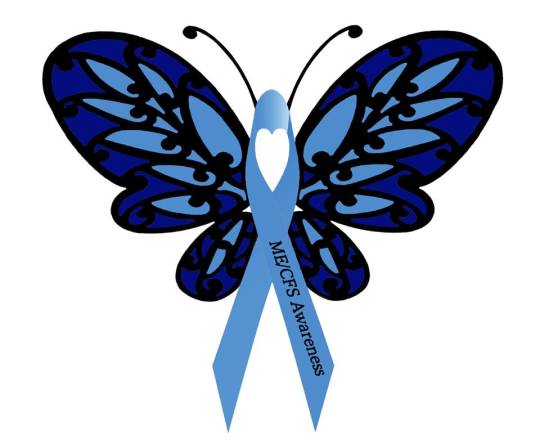
As you’ve probably already guessed, the second batch of blood tests did come back negative, and I’ve been referred to the specialist clinic.
So here I am now waiting for an appointment, while at the same time trying to come to terms with my likely diagnosis, and learning each day how to pace my life with adequate amounts of rest and activity* so I can continue to live as normal a life as I can.
There is a lot more to M.E./CFS than just being a bit tired, as I’m sure many of you out there reading this will already know. It can be a debilitating and life changing disease, and one I feel I’m currently lucky to only have at a mild to moderate level. Even though my life is already completely different than it was a few years ago, I still have some sort of life, I’m not bedridden, or unable to walk at all.
And I hope, if I’m sensible, and continue to train myself to rest (not as easy as it sounds!) that I can prevent my condition from becoming worse, and hopefully allow it to improve over time.
I’d love to hear from you over Twitter, Instagram or Facebook if you too suffer from M.E. or a long term chronic illness. All fellow Spoonies** welcome!

I may continue to blog about this in the future. It just depends on how much energy I have!!
Ali x
*When I say activity; I don’t mean going to the gym or for a long walk with my dogs. I mean something as little as pottering about the house tidying or hoovering. I don’t get out too often right now, but when I do, I really have to limit how much I can do at a time. Activity can also mean something that’s not physical, but requires my brain to function clearly, like chatting with friends or family, or thinking about a new book. Luckily I’ve already handed in the first draft of my 10th book for 2019, and I’m thinking about one for 2020! So don’t worry my lovely readers, you will have more stories from me, that won’t change!
** Spoonie is a term for someone suffering long term chronic illness. Google it if you’re interested in knowing why. :)
0 notes
Photo
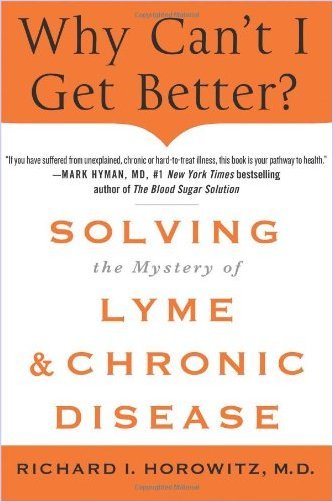
A MUST READ FOR THOSE SUFFERING FROM CHRONIC ILLNESSES WITH NO RELIEF. ANYONE THAT TESTED POSITIVE FOR LYME.
Book came on time & in perfect condition. I was diagnosed at age 5 with Rheumatoid Arthritis & had a couple unexplainable medical problems but was overall a healthy child. I suffered from eating disorders from 14 until I just say 21 because I don't know exactly when at 20yrs old I overcame, by then just Bulimia. I accomplished that in under a year after 7 & 1/2 weeks of inpatient treatment & continued outpatient therapy only to find myself with debilitating horribly awful lower abdominal & back pain attacks along with diarrhea at times up to 30X a day. That happened in less than a year of eating normally & I was diagnosed with Crohn's Disease. Many more chronic illnesses were to follow that I tried everything modern medicine & alternative treatments had to offer. Autoimmune diseases being my biggest problem. I had Graves Disease that went undiagnosed for I don't know how many years which after a few years on medication I was told my best option was to radioactively ablate (kill) my thyroid with no mention of the word Hypothyroidism. I have never even had a year of being healthy & quite honestly I don't know what that would feel like. I thought I finally discovered my problem after around 7yrs of seeing one specialist after another with no improvement but a ton of different diagnosed diseases & medical conditions. I thought it was under treatment of Hypothyroidism & found a doctor that treated in an entirely different way than the Endocrinologist & D.O. I had been seeing. I felt as though someone has turned the lights back on but I was far from healthy but was told I had a year ahead of me to heal my immune system. After only 3 months I had a horrible setback that left me in more pain than I had ever been & unable to even sit or stand for any amount of time, constant headaches that were coming from my neck feeling as though it had turned to stone, dizziness, lightheaded, extremely low blood pressure & much more. Finally the new doctor tested me for Lyme which came back positive for 3 bans or strains. I haven't been able to get my thyroid hormone levels back to what they were for those 3 months so that causes fatigue, pain & a list of symptoms too long to write. I have done a lot of research & joined the Lyme Disease Group on Facebook which is where I first heard of Dr. Horowitz. Anyone that has Lyme Disease should read his book because there is a war going on between the Infectious Disease MDs & ilads which Dr. Horowitz is one of the cofounders of. He has dedicated his career to helping people with Chronic Lyme Disease & all that comes with it, which is what I have but is not recognized by modern medicine. Lyme has become an epidemic & many people are misdiagnosed with everything from MS to Bipolar Disorder. Many people think you must get the bullseye rash to have Lyme but many such as myself do not. I have been in treatment for 9 months now & have never been so sick. I have tested positive for one coinfection but blood tests are unreliable so a good LLMD, Lyme Literate MD, should be able to treat them according to symptoms which currently I don't have a good LLMD. I have heavy metal poisoning also which is common since the bacterial infection that is Lyme weakens your immune system leaving you defenseless to fight off common toxins we all come in contact with. Lyme can trigger autoimmune diseases so I believe I was infected as a child but I will never know when. I have found a good LLMD but can't make the 7 plus hour round trip until my thyroid hormone levels are better which takes months when they are as off as mine are. I have been told too many times to count that I'm not in the medical books, I do the exact opposite of what the medical books say & the best is, this is just impossible. For those suffering from chronic illnesses that never get better despite doing everything & anything to get better I highly recommend this book & going to ilads.org to find a LLMD to get tested. They call Lyme "The Great Imitator" because it can mimic so many diseases. I have a long road ahead of me & there is no cure for Chronic Lyme but I'm told there is a life to be lived as a survivor. I haven't done much living for the past 24yrs, just a lot of existing. Lyme is curable if caught & treated correctly but sadly most people that go through their local hospital or Infectious Disease MD are not cured & told they have to live with the effects of Post Lyme Syndrome, I believe that is correct. To be left with catch all diagnosis of Chronic Fatigue Syndrome, Fibromyalgia, sleep disorders, depression, anxiety..... My memory has been affected along with depression & anxiety. Lyme attacks your entire body including your mind.
Go to Amazon
The Master Speaks!
If you have ME"cfs", Fibromyalgia, ALS, MS or are undiagnosed with serious physical and mental fatigue, pain and/or neurological symptoms and tired of going from doctor to doctor looking for an answer, GET THIS BOOK! Sorry to shout, but this is very important.
Go to Amazon
A Book on Chronic Lyme Disease by a Lyme Medical Detective.
If you have been diagnosed with chronic Lyme, then you or someone you trust needs to read Dr. Horowitz's book on Lyme disease. Horowitz is a medical detective and in dealing with his patients he does not stop with one protocol and send the patient home still ill if the protocol does not work. The doctor will try another protocol and then another until he sees improvement.
Go to Amazon
Enjoying this book -- the information is VITAL
I saw the view that this book is not helpful to those lacking the funds to see someone like Dr. Horowitz. I disagree. I think you need one or more doctors of an open mind willing to use his 16 pt "map" as a guide to getting you well. I lack a LLMD presently but I have been able immediately to add some supplements that he discusses onto my list and have ideas of others I could add. I also feel better informed to speak with my doctors about my health and review the information on medical tests I have done. Sure, this is not an easy path but Dr. Horowitz gives me hope that I can be more active about my health and have some ideas about things to test (like adrenals, hormones, heavy metal burn, cortisol, cytokines, etc.). These things do not necessarily involve months of antibiotics treatment and therefore unlikely to be problematic to any doctor caught in the web of CDC/IDSA/insurance company morass that frankly has kept many a Lymie from being treated with respect and competent care. So far I have done 2 pts to reviewing this book on Daily Kos under the name "lisakaz" for anyone interested in the perspective of a patient with the Lyme-MSIDS problem.
Go to Amazon
A must have if you or someone you love suffers from any Chronic Illness
Five Stars
Try Stevia.
Excellent resource for Lyme patients frustrated by their lack of ...
Five Stars
Highly Recommend
informative and up to date
Identify the cause, Do not treat the symptom
Lots of info
Five Stars
0 notes